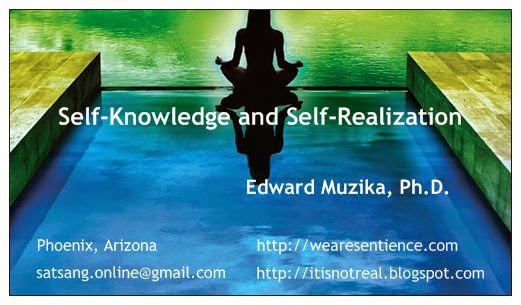Almost all self realized teachers agree that Bhakta
or love, and the highest knowledge, or wisdom, are in the end, the same. But what do they mean by this? Certainly, when practicing self inquiry,
doing body scans, scanning the chakras, looking within to find the internal
void, watching the thought process, intuiting the different parts of the self,
including the Lifeforce, and inner energies, is certainly not the same process
as a loving, as worshiping, as surrendering to another.
In fact, it is my understanding that seekers are of
differing personality types. Some find
the process of loving another, God, guru, person, and animal, and following
that path of devotion, of taking care of, of surrendering to, a more natural
path than the inner path of the Jnani, looking only into him or herself, and
finding the various subjective worlds within.
One is an outward path of relationship, even if it is loving and abstract
entity like God, a statue, a saint, or actively loving somebody in the present. The other is totally inward. It is US the watcher or the feeler, the
subject of feeling or investigation, exploring one’s inner void, the inner
darkness, the inner body energies, bliss, and emotions.
I think in fact they only come together where they
both meet, at the end stages of the other approach. Fulfillment of the Jnana approach, finding
knowledge of the self, then naturally turns into love of the outer world. One has fully explored every aspect of one’s
own being, at least the aspects we have learned through long journeys into
ourselves, and having done that, our attention turns to the external world and
to others. It is only then that the most
intense Bhakta-love relationships possible are given as gifts to you, because
after the self is forgotten through knowing it totally, you can love another without
restraint, with utter abandon.

No comments:
Post a Comment